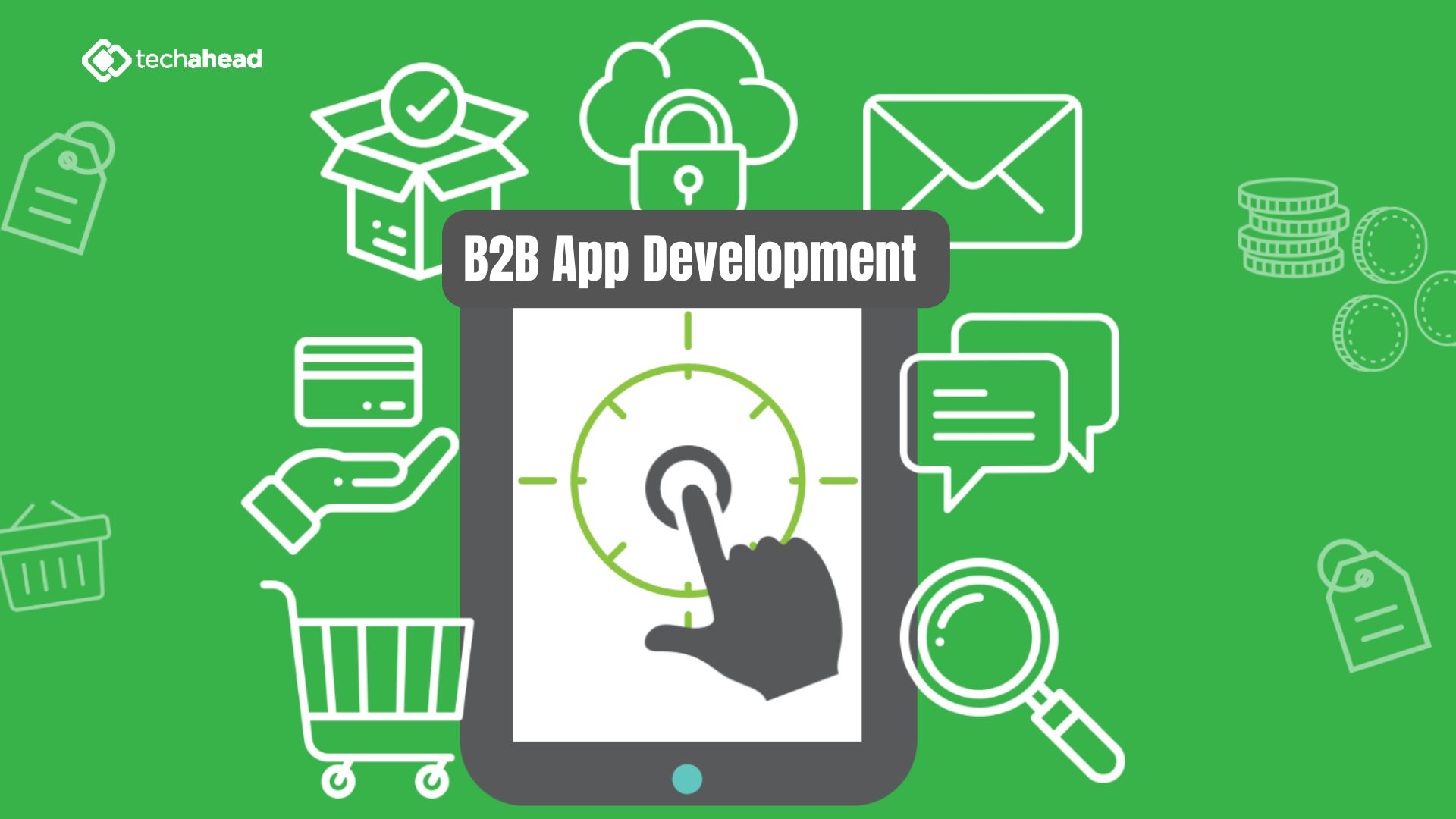Why B2B App Development is Defining the Future of Enterprise Technology

In the fast-evolving digital era, B2B app development has become the cornerstone of enterprise modernization. From improving internal workflows to enabling smarter data use, businesses are leveraging tailored applications to transform the way they operate. Unlike generic tools, custom-built B2B apps align with the unique demands of industries such as healthcare, finance, logistics, and manufacturing—solving complex challenges with precision.
The shift from manual processes to digitized operations is no longer optional—it's a strategic imperative. With growing reliance on cloud computing, mobile platforms, and AI-driven insights, B2B app development helps organizations remain competitive by delivering secure, scalable, and efficient digital ecosystems that are built to adapt as business needs evolve.
Legacy to Leading: Why Custom Enterprise Apps Matter
Legacy systems may have once fueled enterprise success, but today they stand in the way of innovation. With siloed platforms, outdated interfaces, and rigid architectures, these systems can’t keep up with the speed and complexity of modern operations. This is where B2B app development plays a transformative role—enabling businesses to replace fragmented tools with unified, purpose-built solutions. Modern B2B applications are designed to bridge departmental gaps, streamline decision-making, and provide real-time visibility across the entire organization.
Take the insurance industry as an example. Traditionally known for its paper-heavy processes and risk-averse IT environments, insurers are now rapidly turning toward Guidewire development to build powerful digital platforms. By customizing and integrating Guidewire solutions, companies can streamline claims processing, improve policy administration, and personalize customer interactions—all while maintaining compliance and data security.
Whether it’s an ERP upgrade, a mobile dashboard for supply chain analytics, or a web app to manage internal resources, the right B2B application doesn’t just support operations—it transforms them.
Core Features That Power Effective B2B App Development
For a B2B app to deliver lasting value, it must be architected with enterprise priorities in mind. Here are the essential features that define high-impact B2B apps:
1. Scalable Architecture
As businesses grow, so should their technology. Enterprise apps must be capable of handling increasing data volumes, user loads, and service complexity without sacrificing performance.
2. Custom Workflows
No two organizations operate the same way. B2B apps must support configurable workflows, enabling businesses to tailor functionality to meet their unique operational demands.
3. Data Security & Compliance
With rising cyber threats and strict regulatory environments, B2B applications need robust security protocols. This includes data encryption, role-based access control, and audit logs that meet standards like HIPAA, GDPR, or SOC 2.
4. Seamless Integrations
To avoid data silos, enterprise applications must integrate with CRMs, ERPs, HR platforms, and third-party APIs. RESTful APIs and middleware layers allow for smooth data exchange and enhanced functionality.
5. Real-Time Analytics
Empowering leaders with actionable insights is a game-changer. B2B apps with built-in analytics and real-time reporting help businesses make informed, data-driven decisions on the fly.
6. Cloud-Native Infrastructure
Modern B2B applications are built on cloud platforms for agility, scalability, and cost-efficiency. Cloud-native design allows for quick deployment, easier updates, and high availability across geographies.
Real-World Applications Across Industries
Different industries have different needs, but the benefits of B2B apps are universal:
-
Healthcare: Custom apps improve patient care by centralizing medical records, managing telehealth appointments, and streamlining administrative workflows.
-
Manufacturing: IoT-integrated apps track machinery performance, optimize production lines, and predict maintenance needs.
-
Logistics: Enterprise-grade mobile apps manage fleet routes, delivery schedules, and inventory across distributed locations.
-
Finance: Fintech applications automate compliance tasks, support secure transactions, and offer real-time investment insights.
-
Insurance: With tools like Guidewire development, insurers build automated systems for underwriting, claims, and customer support, boosting both efficiency and satisfaction.
Regardless of the industry, the goal remains the same: to replace outdated processes with intelligent, technology-driven solutions that reduce costs, improve performance, and fuel sustainable growth. In today’s hyper-connected environment, businesses can no longer afford to operate with fragmented systems or rely on manual workflows that slow down operations and increase the risk of error. This is especially true in complex sectors such as insurance, where Guidewire development has emerged as a strategic enabler of digital transformation. By leveraging Guidewire’s suite of core and digital products, insurers are modernizing policy administration, streamlining claims handling, and delivering personalized customer experiences at scale. Beyond insurance, similar technology-first approaches are empowering logistics providers to manage global supply chains in real-time, enabling manufacturers to harness IoT-driven insights, and allowing healthcare systems to integrate electronic health records seamlessly. The common thread is clear: whether it’s through customized enterprise apps or platforms like Guidewire, businesses are using modern solutions to build more agile, data-informed, and resilient operations.
Future-Forward Technologies Driving B2B Innovation
Behind every impactful B2B app is a robust technology stack. The modern enterprise development toolkit includes:
-
Frontend: React.js, Angular, Vue.js
-
Backend: Node.js, Django, .NET Core
-
Databases: PostgreSQL, MongoDB, MySQL
-
DevOps: Docker, Kubernetes, CI/CD pipelines
-
Cloud: AWS, Azure, Google Cloud Platform
-
AI/ML: Predictive analytics, automation algorithms
-
APIs: REST, GraphQL for service integration
The combination of these technologies ensures your B2B application is ready for the demands of tomorrow—modular, responsive, secure, and fast.
Take the Next Step with TechAhead
Digital transformation doesn’t happen by accident—it requires vision, strategy, and the right development partner. If your business is ready to innovate, integrate, and lead through cutting-edge B2B app development, we’re here to help. Whether you're exploring advanced platforms like Guidewire, building an internal tool from scratch, or modernizing legacy systems, TechAhead offers the expertise and industry insight to turn your vision into reality.
Let’s build the future—together.
- Questions and Answers
- Opinion
- Motivational and Inspiring Story
- Technology
- True & Inspiring Quotes
- Live and Let live
- Focus
- Art
- Causes
- Crafts
- Dance
- Drinks
- Film/Movie
- Fitness
- Food
- Games
- Gardening
- Health
- Home
- Literature
- Music
- Networking
- Other
- Party
- Religion
- Shopping
- Sports
- Theater
- Wellness
- News
- Culture

